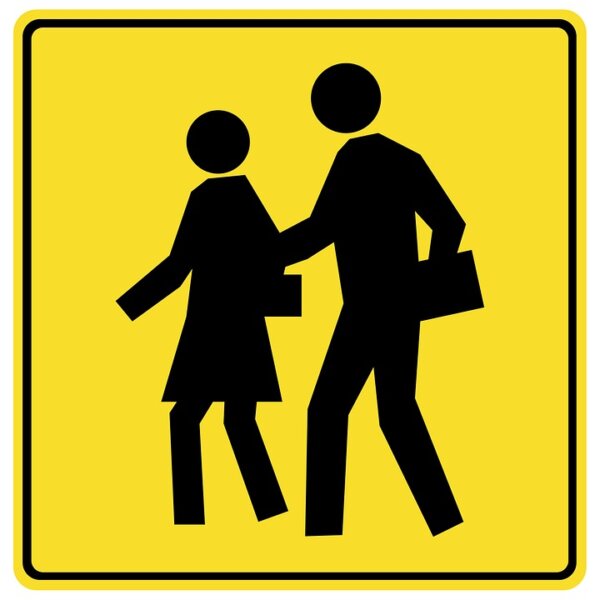






The More Kids Walk, The More Likely They Are to Succeed in Adulthood

The more that kids grow up walking around, the more upward mobility they enjoy as adults.
That’s the startling conclusion of a study on “The Socioecological Psychology of Upward Social Mobility” published in American Psychologist.
The researchers pored over data on 10 million city-dwellers (not suburbanites or rural kids) born 1980-1982. They took into account other factors that obviously influence life trajectories, including the quality of the local schools, race, and income inequality. Above and beyond those variables, they found, “walkability accounted for 11 percent of the additional variance in economic mobility,” writes Richard Florida, author of The Rise of the Creative Class.
In particular, they noted that kids born into the lowest fifth of the income scale had the greatest chance of getting out of poverty in adulthood, the more they walked as kids.
What might be going on? A lot of things.
Car = Expensive
One factor is purely economic: If a neighborhood is walkable, it means the family might not need to own a car, which (as the third owner of my sister-in-law’s second-hand car I can tell you) is a huge savings. No tickets. No parking fees. No need to keep paying when that stupid brake light goes on again just days after it was “fixed.”
Connecting
Beyond this, there are all the things that happen when you’re walking around your neighborhood as a kid, like meeting people and having some adventures. (More than you’d have in a booster seat, anyway.) The researchers found that walking around contributes a sense of community and belonging – powerful positive forces that we all long for.
Health — Both Kinds
Then, too, it’s obviously healthy. That’s why so many people are obsessed with 10,000 steps a day. (9999? You’re gonna die. 10,000? Celebrate with an all-donut dinner.)
When you walk you also have time to let your mind wander, which is good for creativity and working out problems. For what it’s worth, I can remember teaching myself to whistle on my walks to school. And crunching leaves. And freezing. And then freezing some more.
Oh — and freezing. (Winters, Midwest.)
Trust
But one factor that doesn’t seem to have been studied is the kids’ own sense of self-confidence and freedom. The kids allowed to walk knew their parents trusted them – already a great boost. But in turn they learned to trust themselves — their wits, legs, and ability to deal with life. As for freedom – experiencing freedom widens all sorts of boundaries, including a sense of how much you can aim for and do.
Which is not to say that walking around is valuable only because it boosts adult earning power. Of course not. But what a bonus — especially for anyone growing up poor. As the study authors note: “The opportunity for children from poorer households to pull themselves up the economic ladder in adulthood is a hallmark of a just society.”
Keep It Legal!
That’s why I’m thrilled that literally today, a “Free-Range Kids” bill was introduced in the Idaho assembly by Rep. Ronald Nate. Like the Utah law that inspired it, Idaho’s bill ensures that giving their kids some reasonable independence will not be mistaken for neglect.
In Utah, after the law passed in 2018, Le Grow co-founder Dr. Peter Gray asked parents there if they felt any different. “The law is a huge relief,” one mom told him. “There are a lot of parks and stores nearby that my kids can enjoy without fear of answering to police officers.”
That’s why we hope that other states will pass similar laws this year. In addition to Idaho we are working in Nebraska, Nevada, South Carolina, Texas, and possibly Colorado (where the law had passed the House unanimously last year and was about to go to the Senate when Covid hit). If you live in any of those states and would like to get involved, great! Here is our form.
When kids get a chance to walk by themselves they can find their way to parks, playgrounds, hijinks, health, joy and — apparently — the middle class.
Kids, out you go.



Comments are closed for this article.